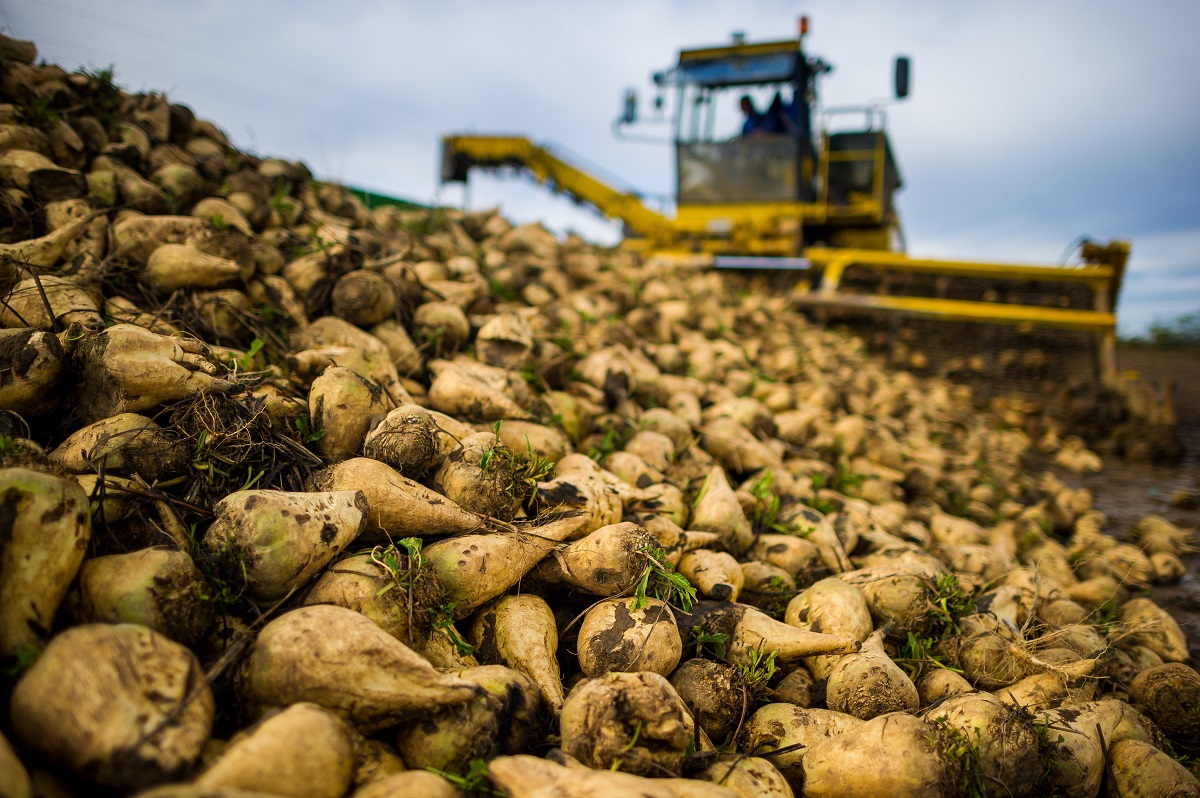364 words / 2 minute reading time
- EU sugar production will not meet consumption in 20/21.
- However, a warm, wet winter has created ideal beet growing conditions.
- The only problem is that the pests able to damage sugar beet also thrive in these conditions.
Production Up (Slightly…)
- We expect the EU’s (including UK) sugar production to increase slightly in 20/21, from 17.3m tonnes to 17.8m tonnes.
- This still means, however, that the EU will produce about 400k tonnes less sugar than it consumes.
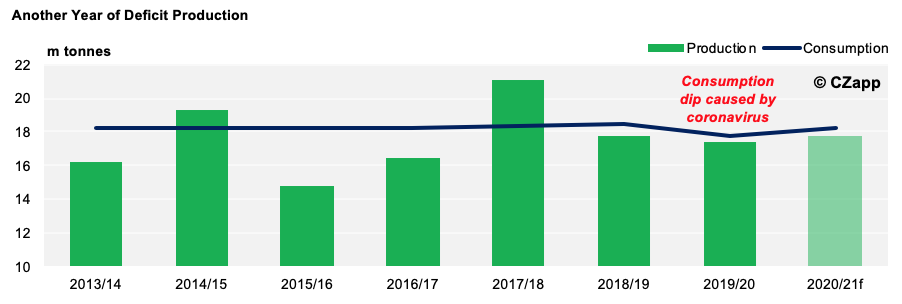
- This small production increase is almost entirely driven by an increase in expected crop yields.
- We expect yields in the top 5 producing to be better than in 19/20.
- In the UK yields will be similar to 19/20 which saw above average yields.

- There has not been any significant change in acreage, with a 5% decrease in France offset by small increases elsewhere.

Beets Starting To Emerge
- Sugar beet planting has made good progress across the EU.
- After an extremely wet winter, the top layer of soil has dried up enough to allow planting.
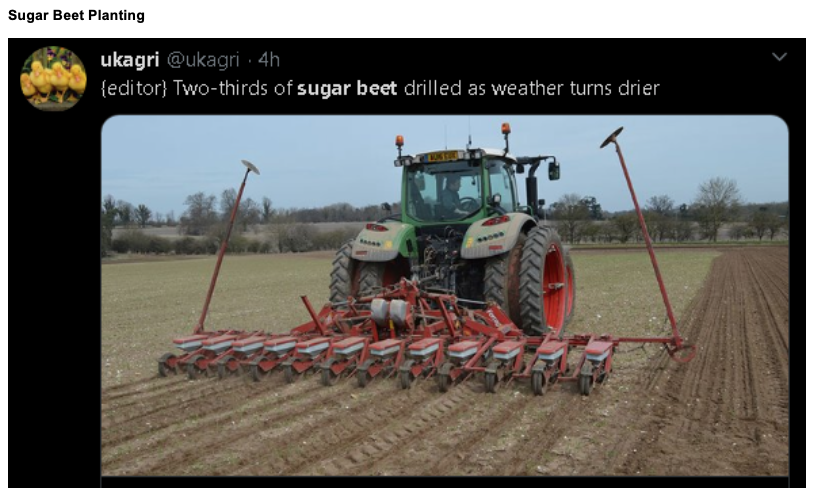
- Crucially, enough moisture remains below the surface to support good beet growth.
- This is exemplified by beet emerging earlier than usual across the UK and Northern Europe.
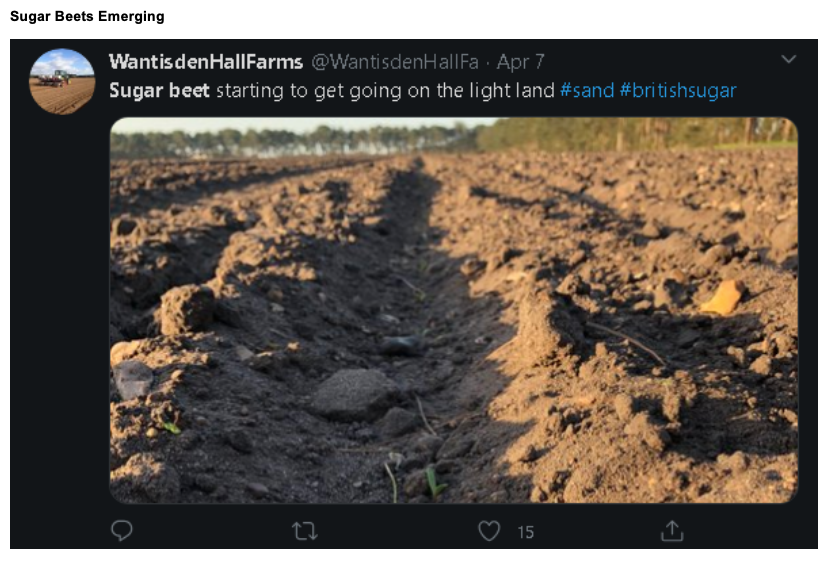
Increased Risk of Pests
- We think beets could face a higher than usual risk from pests such as aphids this year.
- This is because the warm winter will have been positive for the aphid population.
- There is also an absence of already-banned neonicotinoid seed treatments in the soil.
- These treatments were banned before the 19/20 crop, but there would have been residue in the soil from previous seasons.
- The UK has secured an emergency appeal to be able to spray “Biscaya” pesticide this year, in attempt to keep the aphids under control.
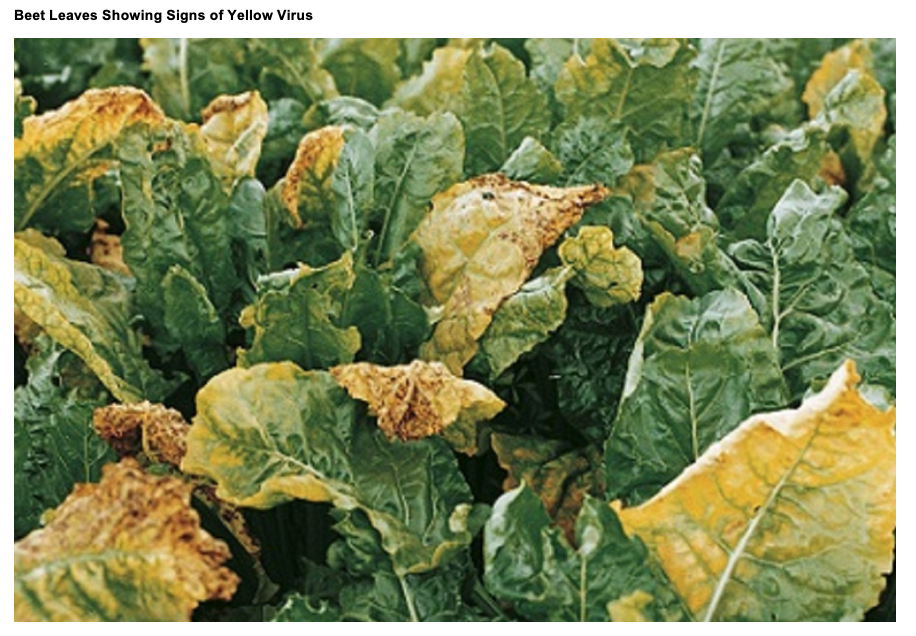
- Aphids cause many yellowing viruses which can damage the beet crop.
- This usually effects the crop from June onwards and can cause yield losses of up to 50% as it reduces the plants ability to photosynthesise (turn sunlight into energy for growth).
